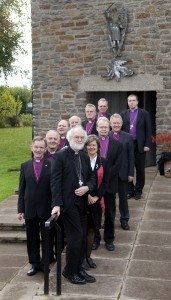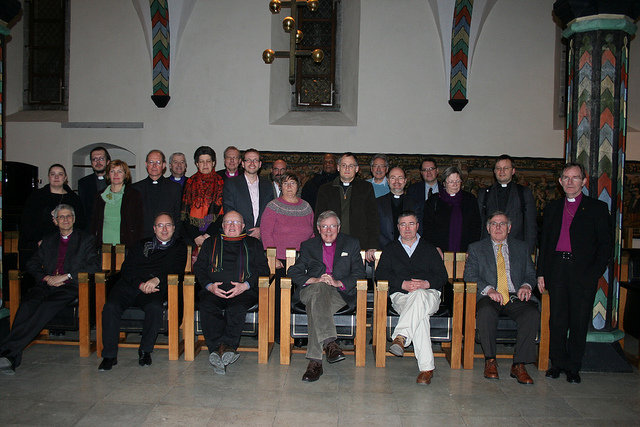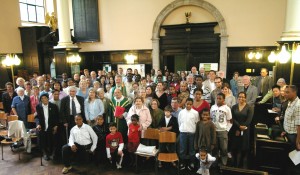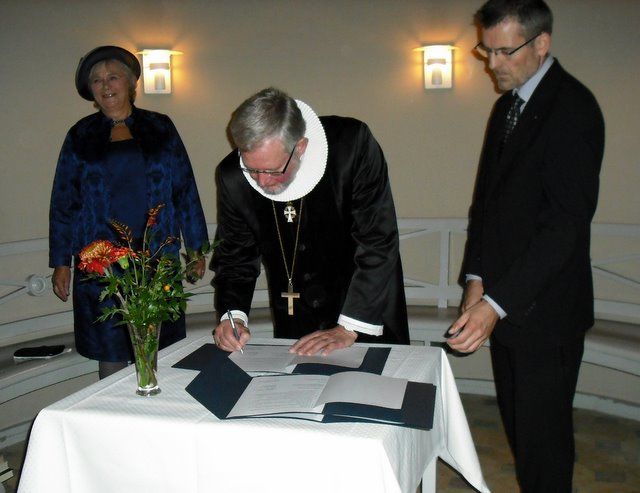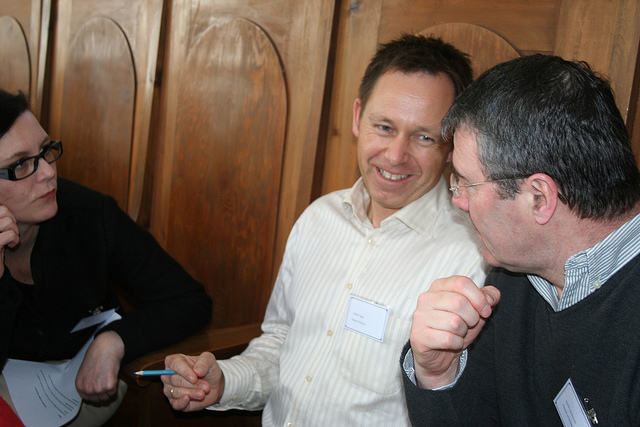“How shall I sing the Lord’s song in a strange land?” was the theme of a Porvoo Consultation on Diaspora and Migration in Uppsala, Sweden from 21 to 24 March 2012. The Consultation was attended by 22 members of the Porvoo Churches and observer churches.
In section b (iv) of the Porvoo Common Statement, members commit themselves “to welcome diaspora congregations into the life of the indigenous church for mutual enrichment.” In the light of increasing migration into northwest Europe and consequent ethnic diversity both in the indigenous churches and in what had been described as “diaspora congregations”, it was appropriate to consider this principle in a changing context.
The consultation heard case studies from representatives of Norwegian, Latvian and Chinese congregations inLondonand from Finnish and Sudanese Anglicans inFinland, and visited Finnish and Anglican churches inStockholmas well as aChurchofSwedenparish, hosting an Ethiopian Mekane Yesus (Lutheran) congregation. Both the presentations and the visits raised questions about the static and dynamic roles of culture and language for identity among migrants and diaspora communities.
Kristina Hellqvist, advisor to the Church of Sweden for refugee and integration issues, provided some statistics about migration in Europe, and a summary of some recent issues, and Barbara Moss from the Church of England Diocese in Europe spoke on “Challenges of Integration”, emphasizing that integration is not the same as assimilation; both the hosts and the new arrivals must be prepared to be transformed by the process.
The same theme was illustrated in the first of three bible studies ably led by Revd DrJohn Perumbalath, who presented the book of Ruth as an example of Naomi, on her return home, providing for the needs of Ruth, the young immigrant, for a home and security. The second bible study, from 1 Peter, identified the theme “Christians in Exile” as applied to diaspora congregations then and now, pointing out that all Christians are migrants in the sense of being people on a journey: they have not yet arrived, and never should – a message echoed in the final statement of Mika Pajunen’s account of Finnish Anglicans: “Our story is not over – keep moving!”
The talks and visits were supplemented by discussions in small groups and workshops on three themes:
- The significance of different causes of migration for the particular identities of diaspora congregations;
- Diaspora congregations becoming part of the indigenous churches;
- Challenges raised by second-generation members of diaspora congregations.
Keynote listeners Bishops Jana Jeruma Grinberga (LutheranChurchinGreat Britain) andDavid Hamid(ChurchofEngland Diocesein Europe) and Revd Dr Christopher Meakin (ChurchofSweden) attended the small groups and workshops, and summarized the highlights of the proceedings.
Recommendations
1. To ask the Porvoo Contact Group:
- to explore how the sharing of stories, including biblical narratives, which has been such an important part of this consultation, may be brought to a wider audience;
- to find ways of encouraging further theological reflection;
- and to develop and collate appropriate resources for our member churches.
2. To ask the Porvoo churches, in collaboration with their national ecumenical instruments, to collect existing guidelines or draw up new ones for the sharing of church buildings and other resources, including sample contracts and other working agreements, in order to identify and inform about good practice.
3. Recognizing that changing patterns of migration have led to the formation of gathered congregations within Porvoo churches with a geographical parochial system, to ask those churches to reflect on how members of these diaspora congregations may be welcomed into membership of the host church in the place where they worship together.
4. To ask the Porvoo churches:
- to encourage their clergy and ordinands to become competent in engaging with cultural differences;
- to build up databases of deacons, priests and pastors able to minister in languages other than the majority languages and English;
- to ensure that the speakers of these languages can find, in their own languages, access to this information.
5. To encourage host and migrant congregations to become involved together in the local ecumenical scene as equal partners with their Christian brothers and sisters, sharing their gifts for mutual enrichment.
Porvoo Consultation on Diaspora and Migration 2012 Documentation
Bible studies: How Shall we Sing the Lord’s Song in a Strange Land?

